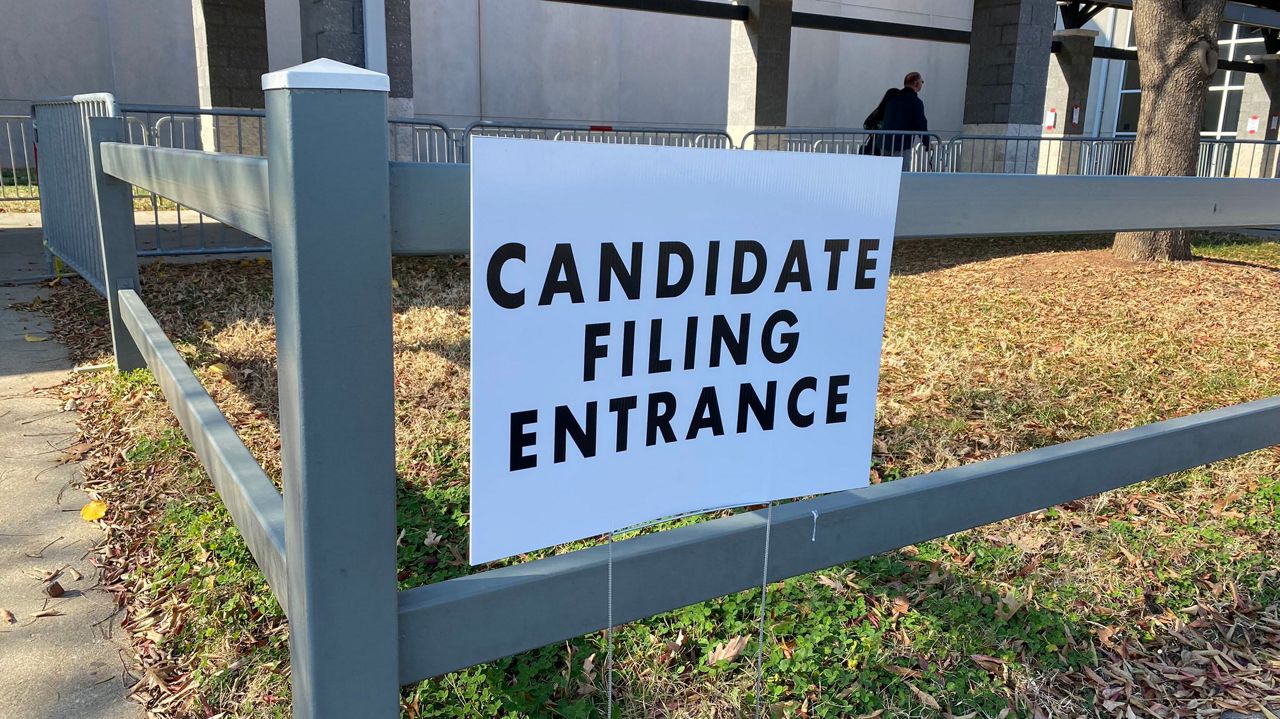RALEIGH, N.C. — The morning before candidate filing was set to open, the North Carolina Court of Appeals ordered a pause in filing for North Carolina's congressional and state legislative seats. But after a day of confusion and competing legal filings, the appeals court reversed its decision and will allow candidates to file for office.
The appeals court ruling came in a lawsuit brought by the North Carolina League of Conservation voters, which argued the maps were unconstitutional.
Candidate filing was slated to start at noon Monday. Filing for all other elections continued Monday, and candidates running for Congress and the North Carolina House and Senate can begin filing Tuesday.
In a filing with the appeals court Monday afternoon, attorneys said the temporary stay on filing "upends the orderly electoral process in North Carolina."
The lawyers, representing the Republican leaders on the redistricting committee, asked for the court to suspend its rules to have a hearing on the lawsuit quickly.
"The panel has thrown the 2022 election cycle into unprecedented uncertainty — and for no good reason," the filing reads.
The State Board of Elections, along with the chairs of the Republican-led redistricting committees in the General Assembly are the defendants in the case. They have until Thursday to respond to the Court of Appeals, when the court could rule again on whether or not to let candidate filing go forward.
North Carolina's primary election is set for March 8, but that could change if the Appeals Court decides the electoral maps are unconstitutional.
The governor and state Attorney General Josh Stein Monday afternoon asked the North Carolina Supreme Court to hear the two cases challenging the maps and decide them quickly.
"Voters are stripped of their voices by technologically diabolical and unconstitutionally partisan districts," Gov. Roy Cooper said in a statement. "For the health of our democracy, the Supreme Court should hear this challenge quickly and thoroughly."
“In a representative democracy, the voters choose their representatives,” Stein said. “Partisan gerrymandering distorts our democracy by discriminating against certain voters based on their political views and allowing representatives to cling to power no matter the will of the voters.”
Michele Woodhouse, a Republican running for the 14th Congressional District in western North Carolina, said she drove down from the mountains over the weekend expecting to file her candidacy Monday.
She said she was standing in line when the order came from the Court of Appeals.
"Of course we were disappointed we couldn't file today," Woodhouse said. "We will just wait to come back to Raleigh in a few days or whenever the court lifts the stay."
North Carolina's redistricting process is no stranger to the courts. The last round of redistricting in 2011 led to political and legal battles that lasted for almost a decade. Those lawsuits were about both racial and political gerrymandering, meaning the map makers used race or political leanings to disenfranchise a specific group.
"It is unusual to have a court to step in and say 'we're going to put a pause on the candidate filing,'" said Michael Bitzer, a political science professor at Catawba College who recently published a book on the history of redistricting in North Carolina.
He said it's not clear if the move by the court would delay the March 8 primary.
Bitzer said he is surprised by the court's move and will be watching to see if the State Board of Elections and GOP leaders in the legislature appeal to the North Carolina Supreme Court.
"Normally, courts of appeals will be hesitant to insert themselves before a trial has really ever begun," he said. But there must have been something in the lawsuit that led the judges to hit pause on candidate filing.
Spectrum News 1's Reuben Jones and Lauren Toms contributed reporting.



